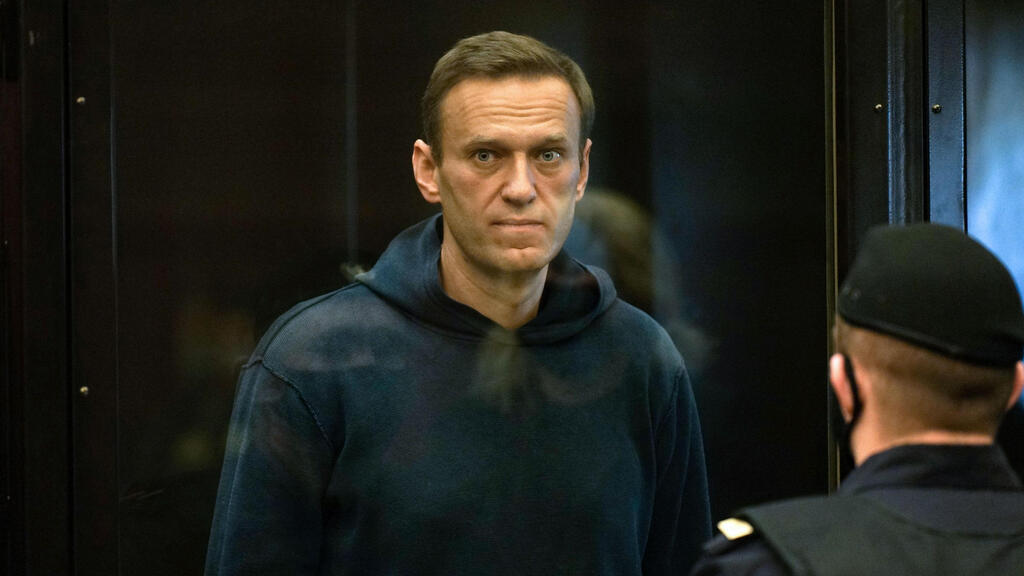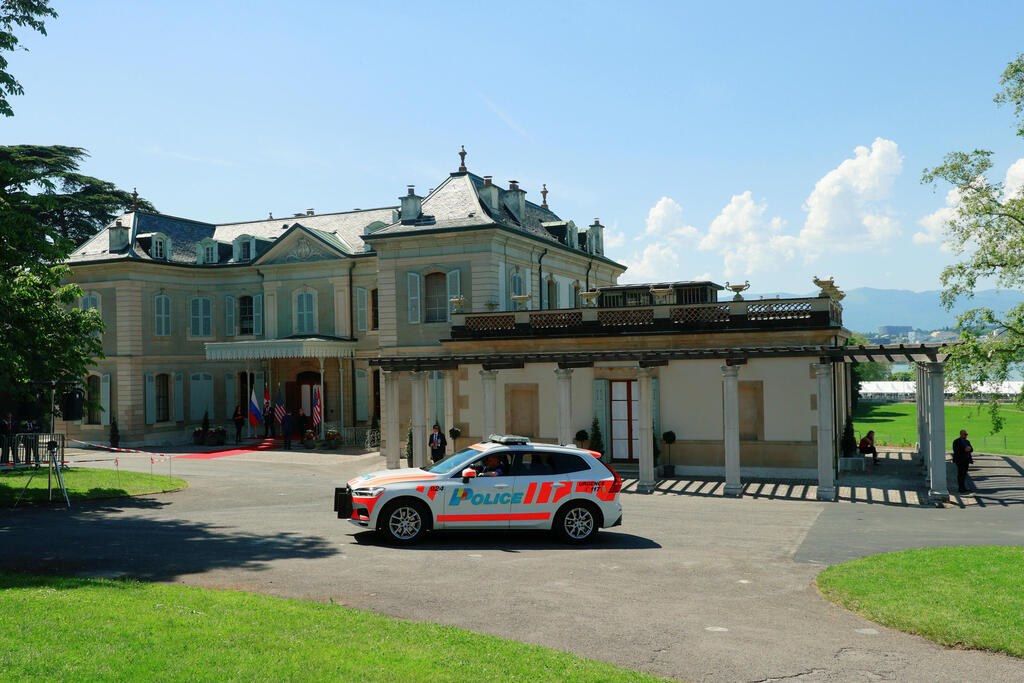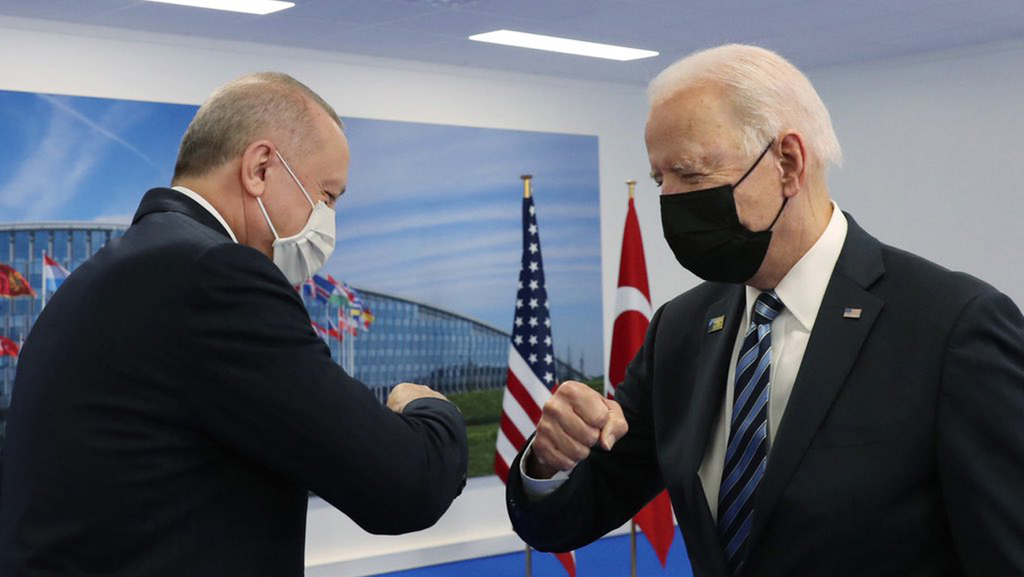Getting your Trinity Audio player ready...
U.S. President Joe Biden said he and Russian President Vladimir Putin agreed to work together to ensure Iran does not obtain nuclear weapons.
In what was described as a "pragmatic" first summit on Wednesday to hold arms control and cyber-security talks and return their respective ambassadors, while agreeing to differ on other issues.
8 View gallery
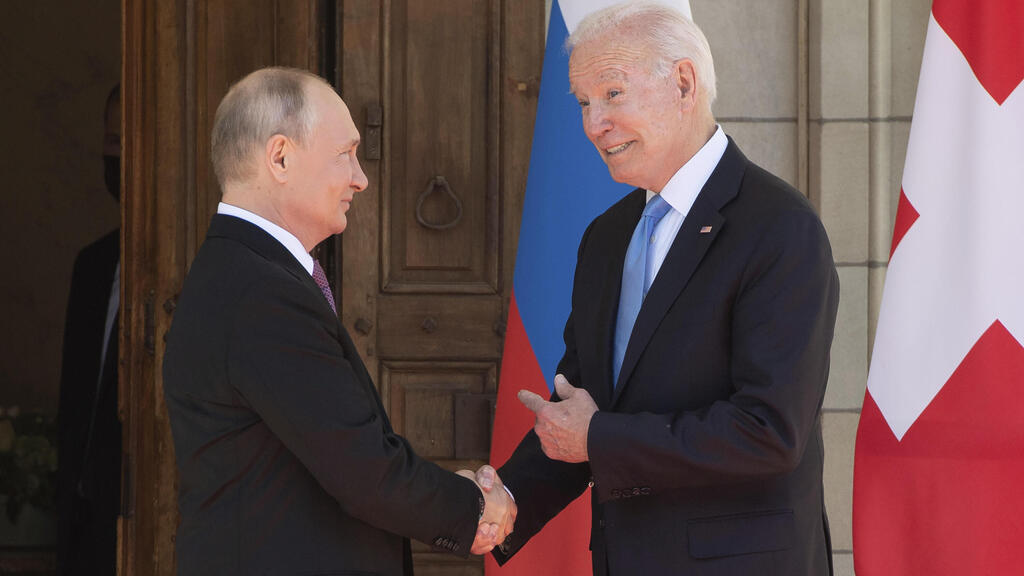

Vladimir Putin and Joe Biden at start of their summit on Wednesday in Geneva
(Photo: AP)
The discussions at the lakeside Villa La Grange in Geneva lasted less than four hours - far less than Biden's advisers had said they expected.
Putin, 68, called Biden, 78, a constructive, experienced partner, and said they spoke "the same language", but added that there had been no friendship, rather a pragmatic dialogue about their two countries' interests.
Biden said he had "told President Putin we need some basic rules of the road that we can all abide by", adding: "I did what I came to do."
The scheduling of separate news conferences meant there was none of the joviality that accompanied a 2018 meeting in Helsinki between Putin and Biden's predecessor, Donald Trump, where Putin presented Trump with a soccer ball. There was also no shared meal.
Putin, who was first to brief reporters, said the meeting had been constructive, without hostility, and had showed the leaders' desire to understand each other.
8 View gallery
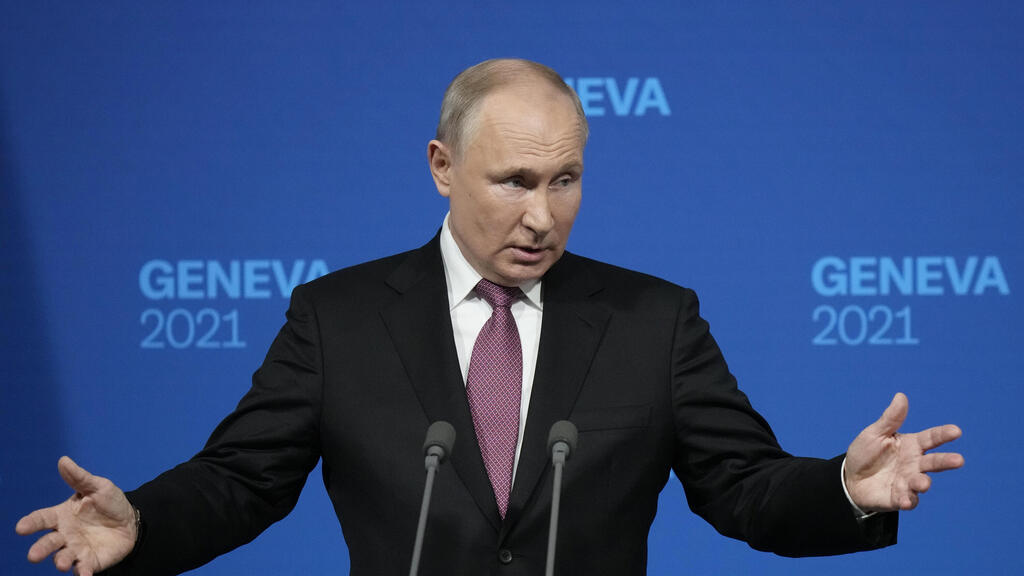

Russian President Vladimir Putin briefs media after his meeting with U.S. President Joe Biden on Wednesday
(Photo: AP)
He said it was "hard to say" if relations with the United States would improve, but that there was a "glimpse of hope" regarding mutual trust. There were no invitations to Washington or Moscow.
Biden, speaking shortly afterwards, said there was "no substitute for face-to-face dialogue", and that he had told Putin his agenda was "not against Russia", but "for the American people".
He also said the discussions had spent a great deal of time on arms control and on cyber-attacks, where he had told Putin that "critical infrastructure should be off-limits".
In perhaps his strongest remark, he said the consequences would be "devastating for Russia" if jailed opposition figurehead Alexei Navalny died.
Both men said Russia and the United States shared a responsibility for nuclear stability, and would hold talks on possible changes to their recently extended New START arms limitation treaty.
8 View gallery
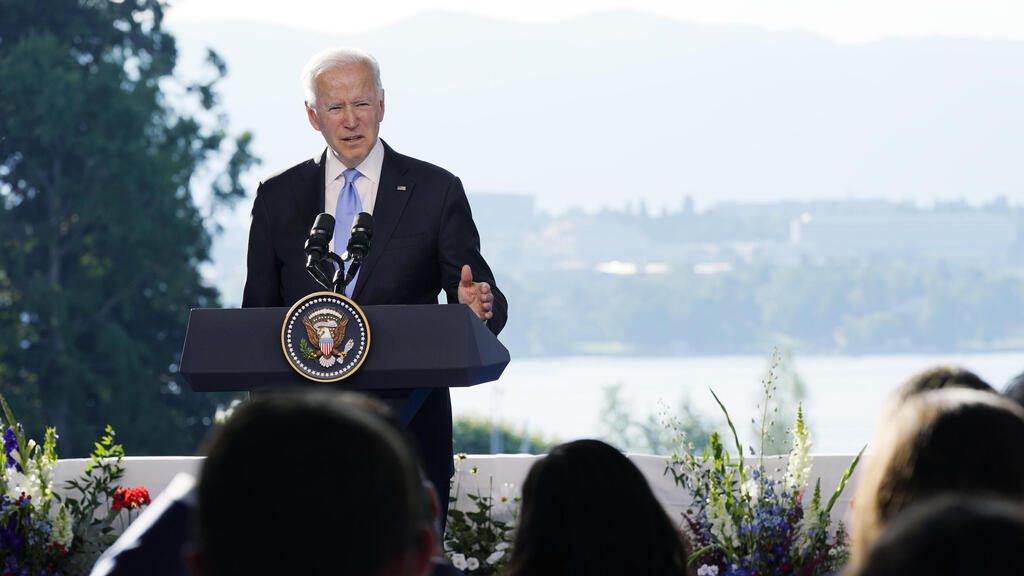

U.S. President Joe Biden briefing the media following his meeting with Russian President Vladimir Putin on Wednesday in Geneva
(Photo: AP)
Putin showed little appetite for compromise on a range of other issues, dismissing Washington's concerns about Navalny, about Russia's increased military presence near Ukraine's eastern border, and about U.S. suggestions that unidentified Russians were responsible for a series of cyber-attacks in the United States.
Putin said Navalny had ignored the law and had known what would happen if he returned to Russia from Germany, where he had received treatment for an attempt inside Russia to kill him with poison. He also accused Kyiv of breaking the terms of a ceasefire agreement with pro-Russian rebels in eastern Ukraine.
The Kremlin leader said Russia had been the target of numerous cyber-attacks originating in from the United States.
Biden said he had raised human rights issues and also the fate of U.S. citizens jailed in Russia. Putin said he believed some compromises could be found, although he gave no indication of any prisoner exchange deal.
ARMS CONTROL PROGRESS
Arms control is, however, one domain where progress has historically been possible despite wider disagreements.
In February, Russia and the United States extended for five years the New START treaty, which caps the number of strategic nuclear warheads they can deploy and limits the land- and submarine-based missiles and bombers to deliver them.
Both sides had said in advance of the summit that they hoped for more stable and predictable relations, even though they were at odds over everything from arms control and cyber-hacking to election interference and Ukraine.
Putin and Biden shook hands on arrival before going inside, and Biden flashed a 'thumbs-up' to reporters as he left the villa where the talks were held and got into his limousine.
The first round of talks - which included Biden, Putin, U.S. Secretary of State Antony Blinken and Russian Foreign Minister Sergei Lavrov - lasted almost two hours, officials said.
8 View gallery


US President Joe Biden, Russian President Vladimir Putin, and Russian Foreign Minister Sergey Lavrov, during the US-Russia summit on Wednesday in Geneva
(Photo: EPA)
Talks resumed after a break at around 4 p.m. (1400 GMT), with Moscow's ambassador to the United States, Anatoly Antonov, who was recalled to Russia in March, among those present. That round ended at 5:05 p.m. (1505 GMT).
Relations between Moscow and Washington have been deteriorating for years, notably with Russia's 2014 annexation of Crimea from Ukraine, its 2015 intervention in Syria and U.S. charges - denied by Moscow - of meddling in the 2016 election that brought Donald Trump to the White House.
They sank further in March when Biden said he thought Putin was a "killer", prompting Russia to recall Antonov to Washington for consultations. The United States recalled its ambassador in April.
Putin said on Wednesday that he had been satisfied by Biden's explanation of the remark.
Trump's summit in 2018 with Putin in Helsinki had included a meeting accompanied only by interpreters, but Biden and Putin had no solo talks.
Standing beside Putin in Helsinki in 2018, Trump refused to blame him for meddling in the 2016 U.S. election, casting doubt on the findings of his own intelligence agencies and sparking a storm of domestic criticism.
Russia's ambassador to the U.S., Anatoly Antonov, was recalled from Washington about three months ago after Biden called Putin a killer; U.S. Ambassador to Russia John Sullivan left Moscow almost two months ago, after Russia suggested he return to Washington for consultations. Putin said that the ambassadors were expected to return their posts in the coming days.
Putin also said the two sides agreed in principle to begin consultations on cybersecurity issues, though he continued to deny U.S. allegations that Russian government was responsible for a spate of recent high-profile hacks against business and government agencies in the United States and around the globe.
Biden and Putin plunged into the face-to-face talks Wednesday at a lush lakeside Swiss mansion, a highly anticipated summit at a time when both leaders say relations between their countries are at a low point.
As the two leaders appeared briefly before media at the start of the meeting, Biden called it a discussion between "two great powers" and said it was "always better to meet face to face." Putin said he hoped the talks would be "productive."
The meeting in a book-lined room had a somewhat awkward beginning, both men appeared to avoid looking directly at each other during a brief and chaotic photo opportunity before a scrum of jostling reporters.
Biden nodded when a reporter asked if Putin could be trusted, but the White House quickly sent out a tweet insisting that the president was "very clearly not responding to any one question, but nodding in acknowledgment to the press generally."
The two leaders did shake hands. Biden extended his hand first and smiled at the stoic Russian leader moments earlier when they posed with Swiss President Guy Parmelin, who welcomed them to Switzerland for the summit.
For months, Biden and Putin have traded sharp rhetoric. Biden has repeatedly called out Putin for malicious cyberattacks by Russian-based hackers on U.S. interests, for the jailing of Russia's foremost opposition leader and for interference in American elections.
Putin has reacted with whatabout-isms and denials pointing to the Jan. 6 insurrection at the U.S. Capitol to argue that the U.S. has no business lecturing on democratic norms and insisting that the Russian government hasn't been involved in any election interference or cyberattacks despite U.S. intelligence showing otherwise.
In advance of Wednesday's meeting, both sides set out to lower expectations.
Even so, Biden said it was an important step if the United States and Russia were able to ultimately find "stability and predictability" in their relationship, a seemingly modest goal from the president for dealing with the person he sees as one of America's fiercest adversaries.
Arrangements for the meeting were carefully choreographed and vigorously negotiated.
Biden first floated the meeting in an April phone call in which he informed Putin that he would be expelling several Russian diplomats and imposing sanctions against dozens of people and companies, part of an effort to hold the Kremlin accountable for interference in last year's presidential election and the hacking of federal agencies.
Putin and his entourage arrived first at the summit site: Villa La Grange, a grand lakeside mansion set in Genev's biggest park. Next came Biden and his team. Putin flew into Geneva on Wednesday shortly before the scheduled start of the meeting; Biden who was already in Europe for meetings with allies arrived the day before.
8 View gallery
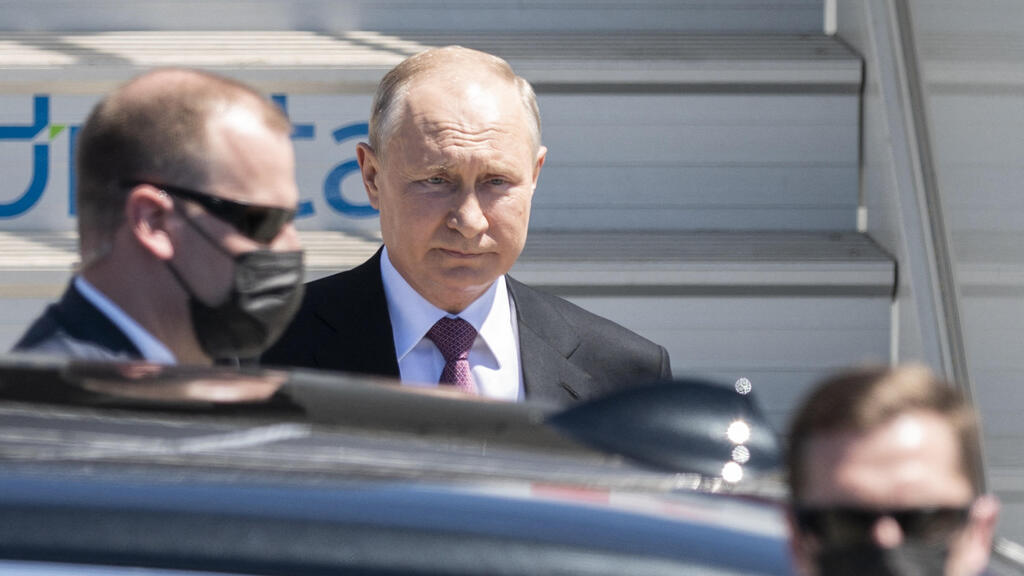

Vladimir Putin arrives in Geneva on Wednesday ahead of his summit meeting with U.S. President Joe Biden
(Photo: AFP)
The White House opted against holding a joint news conference, deciding it did not want to appear to elevate Putin at a moment when the U.S. president is urging European allies to pressure Putin to cut out myriad provocations.
Biden sees himself with few peers on foreign policy. He traveled the globe as a member of the Senate Foreign Relations Committee and was given difficult foreign policy assignments by President Barack Obama when Biden was vice president. His portfolio included messy spots like Iraq and Ukraine and weighing the mettle of China's Xi Jinping during his rise to power.
He has repeatedly said that he believes executing effective foreign policy comes from forming strong personal relations, and he has managed to find rapport with both the likes of Turkey's Recep Tayyip Erdogan, whom Biden has labeled an "autocrat," and more conventional Western leaders including Canada's Justin Trudeau.
But with Putin, who he has said has "no soul," Biden has long been wary. At the same time, he acknowledges that Putin, who has remained the most powerful figure in Russian politics over the span of five U.S. presidents, is not without talent.
"He's bright. He' tough," Biden said. "And I have found that he is a as they say ... a worthy adversary."
Biden had prepared for his one-on-one by reviewing materials and consulting with officials across government and with outside advisers. Aides said the level of preparation wasn't unusual. Biden, in a brief exchange with reporters upon arriving in Geneva on Tuesday night, sought to offer the impression that he wasn't sweating his big meeting.
"I am always ready," Biden said.
First published: 21:11, 06.16.21


